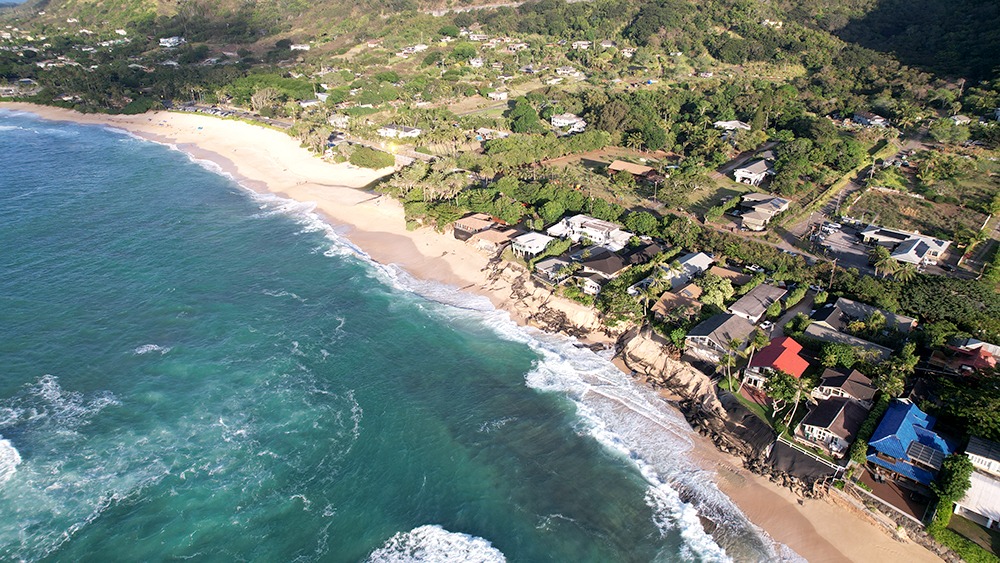A recent report co-authored by Haley & Aldrich resilience leader Melissa May delivers recommendations for managed retreat in Hawaii’s vulnerable coastal areas. This report offers an important perspective as Hawaii and other states plan for the impacts of climate change along coastlines. Managed retreat — the intentional shifting of development and infrastructure away from areas vulnerable to coastal hazards such as sea level rise and coastal erosion — will likely be a key strategy for adapting to those impacts.
Hawaii’s Office of Planning and Sustainable Development Coastal Zone Management Program led the study that produced the report. Melissa served as the study’s project manager, with support from subject matter experts at multiple consulting firms. This research team examined existing policies, laws, and regulations likely to shape managed retreat strategies, as well as related financial and practical issues.
The final report, “An analysis of managed retreat strategies in Hawaii: policy and funding opportunities and challenges,” was recognized with a 2025 Best Practice Award from the Hawaii Chapter of the American Planning Association. It offers 20 recommendations — from reexamining current land use to providing assistance for voluntary relocation — that would constitute a new Beach Resilience Program.
This program would focus on managed retreat in sandy beach areas, where the strategy may prove key to climate adaptation because of “accelerating coastal erosion; the presence of high value ecological, cultural, and recreational public trust resources; and the consequences of not adapting proactively, including threats to public trust resources as well as public health and safety,” the authors write.
Learn more about the report and its recommendations.




